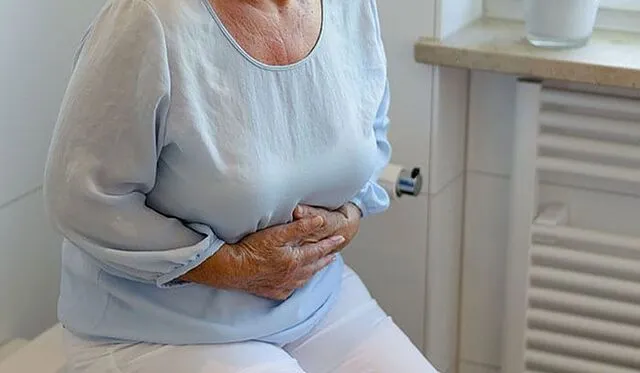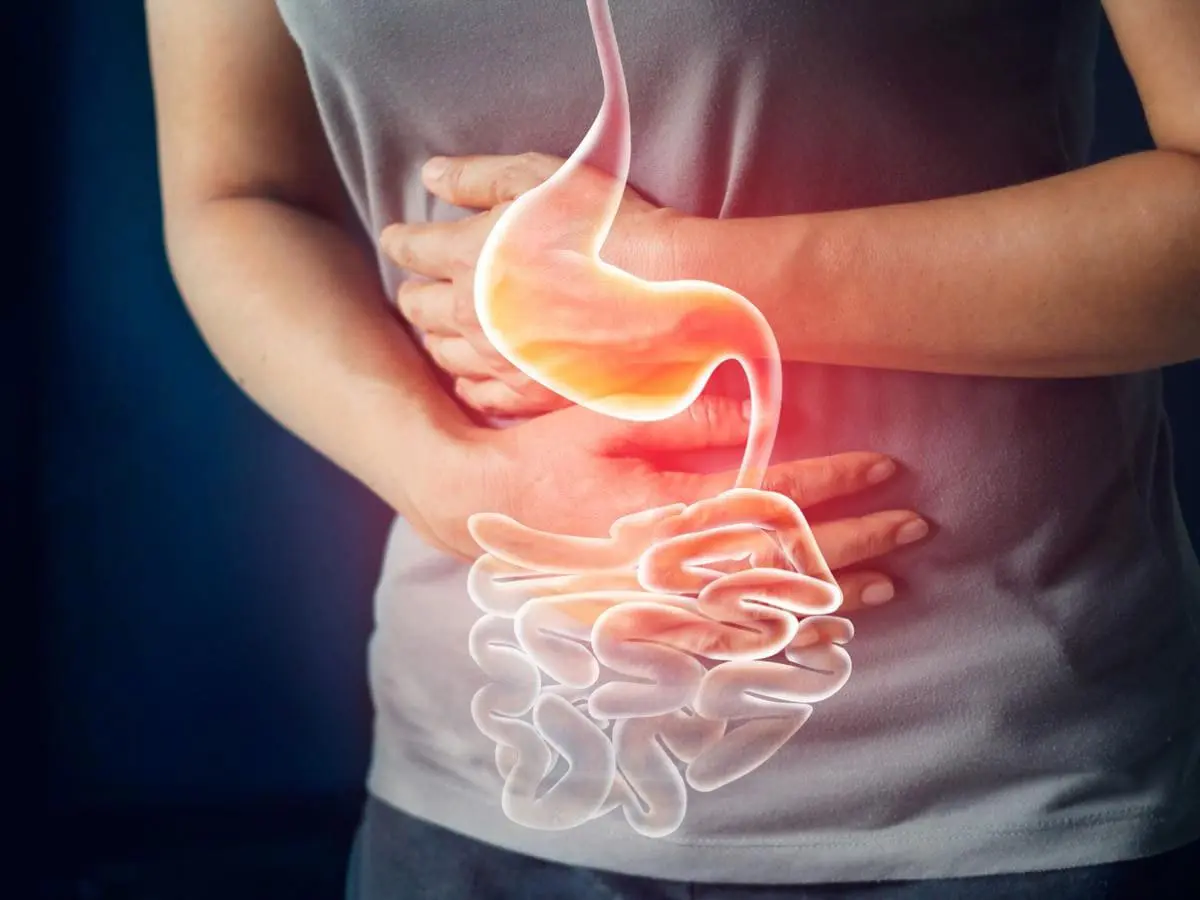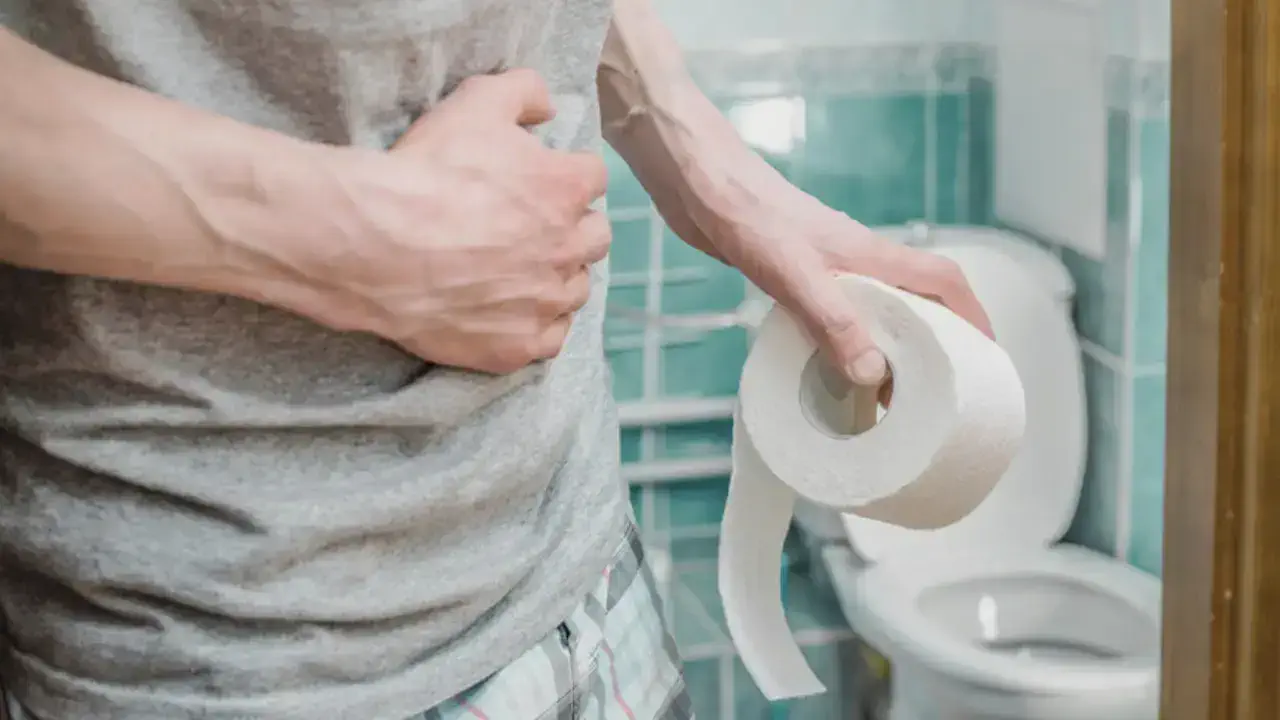
What are the Causes of Constipation in the Elderly?
In general, there are many causes of constipation in the elderly. Constipation is an unpleasant condition that can occur at any age. However, the likelihood of constipation increases in men and women after the age of 60. Chronic constipation is very common in adults over 60; as much as 50 percent of people in nursing homes complain of constipation. If constipation is not permanent, the problem can be solved with small changes in lifestyle, such as adding fiber to the diet and increasing physical activity.
But if constipation becomes chronic, it is inevitable to use some medications such as laxatives. According to the relationship between elderly nutrition and diseases, this problem can be solved to a large extent by following nutritional tips. In this article from humanhealthmag, we will first discuss the causes of constipation in the elderly and then we will mention its treatment methods. We will also explain the treatment options.
What is Constipation?
Before talking about the causes of constipation in the elderly, we must first know what is meant by constipation. When a person has only 3 or fewer bowel movements in a week, it means that he is constipated. It is also a situation in which a person cannot completely empty his bowels. Many people say that they are constipated even when they have to strain to have a bowel movement. Constipation can happen to everyone from time to time, but when it occurs regularly and continuously, it will be problematic.
When stool remains in the large intestine or colon for a long time, it becomes hard and dry, and as a result, the bowel movement will be more difficult. About 16 percent of adults experience chronic constipation. But this percentage reaches one-third of the population in people over 60 years of age, which is considered a relatively high figure. One of the best solutions to treat constipation is to use anti-constipation pills. This problem has many causes, and even some medications, such as those for anemia in the elderly, can cause constipation.

Types of Constipation Among Elderly
In general, we have two types of constipation: primary and secondary, which may occur at any age and the causes of constipation in the elderly vary.
Primary constipation
Primary constipation is also called functional constipation. This type of constipation occurs when there is a disorder in the functioning of the intestine. This means that the cause of constipation in this case is not due to a specific disease or medication. Primary constipation falls into 3 categories: normal constipation, slow-transit constipation, and bowel disorders. A person may have several types of constipation at the same time. Normal constipation is the most common type and occurs when your stool moves with regular frequency but is difficult to expel.
In slow-transit constipation, the intestine delays the evacuation of stool for some reason. Most people with metabolic disorders such as diabetes and hypothyroidism suffer from this type of primary constipation. In the type related to bowel disorders, problems with the muscles of the rectum reduce the urge to defecate and cause stool to build up in the large intestine without emptying. Note that constipation can also cause anorexia in the elderly.
Secondary constipation
Another type of constipation in the elderly and in general all people is secondary constipation. Secondary constipation occurs when bowel problems are related to some physical and medical problems. The use of certain medications can also be considered a cause of secondary constipation. For example:
- Taking more than 5 different medications at the same time
- Having a chronic illness
- Mental health problems
Most Common Causes of Constipation in the Elderly
As we age, many changes occur in the human body. The internal systems of the body slow down and lose their efficiency. On the other hand, diet, conditions, and lifestyle may also change. As we said, constipation is very common among both men and women after the age of 60. Some of the causes of constipation in the elderly include:
- Decreased mobility and physical activity
- Chronic diseases
- Dehydration
- Insufficient food and water intake
- Constipation treatment

On the other hand, structural changes occur in the body with age, such as:
- Thickening of the colon
- Narrowing of the anus
- Rectocele (weakening of the back wall of tissue between the intestine and the vagina in women)
- Hemorrhoids
- Decreased efficiency of the digestive system
- Motion disorders
- Intestinal obstruction and perforation
Best Foods to Treat Constipation in the Elderly
After understanding the causes of constipation in the elderly, it is time to treat this problem. Hence, adding plenty of fiber like high fiber foods for elderly constipation and water to the diet is the key to treating constipation. Some of the high-fiber foods that help treat constipation are:
- Oatmeal
- Whole wheat bread
- Whole grain pasta
- Lentils, peas and beans
- Berries
- Apples (with skin) and pears
- Broccoli
- Peas
To treat constipation in the elderly, fast foods, fried foods and processed foods should be avoided because these types of foods either lack fiber or have very little fiber. Dairy products and foods that are high in sugar can also increase the risk of constipation. Also, if the elderly have several different diseases and take many medications, constipation may be inevitable in them. But you can reduce your chances of constipation by using the following strategies:
- Drinking plenty of water
- Increasing physical activity
- Exercising regularly
- Including 25 to 35 grams of fiber in your daily diet
- Setting aside time (regularly) to go to the bathroom after each meal
Medication to Treat Constipation in the Elderly
First, the causes of constipation in the elderly and its type must be diagnosed, and then appropriate treatment should be given based on that. Anti-constipation tablets and syrups can usually be purchased without a doctor’s prescription. But if the doctor prescribes a specific medication, the results will undoubtedly be better. There are several types of medications to treat constipation:
Stool bulking medications
These medications increase the volume of stool to increase the feeling of needing to defecate in the person. Some of these medications include:
- Methylcellulose powder (fiber supplement): 19 grams per day
- Polycarbophil tablets: 1250 mg 1 or 4 times a day
- Psyllium fiber (Metamosil): 1 teaspoon or 1 packet one to three times a day
Osmotic laxatives
Osmotic laxatives work by absorbing water into the large intestine. These medications help keep stools soft and hydrated, making it easier to have a normal bowel movement. Examples of these medications include:
- Lactulose solution: 15 to 30 ml per day
- Magnesium citrate solution: 150 to 300 ml as a single dose
- Magnesium hydroxide suspension: 30 to 60 ml per day
- Polyethylene glycol powder (Miralax): 17 g per day
- Sorbitol solution: 2 to 3 tablespoons as a single dose or for short-term daily use

Stool softeners
Constipation in the elderly can also be improved with stool softening pills. Stool softeners make it easier to pass stool. Docusate sodium or Colace capsules are among these medications.
Stimulant laxatives
Medications that are stimulant laxatives help move stool by stimulating intestinal contractions. These types of laxatives and their recommended dosages are:
- Bizocodyl tablets: 5 to 15 mg per day
- Senna tablets: 15 mg per day
Factors Affecting the Causes of Constipation in the Elderly
As we have said before, the most important cause of constipation in the elderly is increasing age. In fact, reaching the age of 60 is a factor in increasing the risk of constipation. But there are other factors, for example, women are more likely to suffer from constipation than men. Also, people who are physically weak are more likely to suffer from constipation. Other factors affecting the risk of constipation in the elderly include:
- Low-fiber diet
- Inactivity or immobility
- Dehydration and dehydration
- Not consuming enough food and water
- Taking multiple medications at the same time
- Insufficient time for bowel movements or inadequate privacy
Dangers of Constipation for the Elderly
Now that you are fully familiar with the causes of constipation in the elderly, you may have wondered whether constipation is dangerous or not? Different foods enter our bodies every day. During the process that takes place in the body, beneficial substances are extracted from the food consumed and used. Its waste and toxins are also removed from the body through urine, breathing, and feces. If the elderly suffer from constipation and excretion is not done properly; feces or waste and toxic substances are reabsorbed by the intestines.
In this situation, if the body tries to eliminate these toxins in another way, you will witness lung diseases and skin problems, and if toxic substances accumulate in parts of the body, it causes benign and malignant tumors in the elderly body. Other problems that arise due to constipation include:
- Anal fissure
When feces exert too much pressure on the anus to pass, the elderly suffer from an anal fissure or anal tear. This disease is also known as anal fissure or anal fissure. Suffering from this disease will be accompanied by bleeding and pain, so that even urinating and coughing are accompanied by pain and burning.
- Rectal prolapse
In some elderly people, rectal prolapse also occurs along with constipation. When the lateral pressure of the intestine is so great that it cannot withstand it, rectal prolapse or rectal protrusion occurs. This disease can occur at any age and gender, but the likelihood of developing it increases in the elderly, who are more likely to suffer from constipation. The symptoms of anal diseases are almost similar. If an elderly person has rectal prolapse, they will experience symptoms such as seeing red tissue protruding from the anus, pain in the anal area, fecal incontinence, and the release of a series of purulent and bloody fluids.
- Hemorrhoids
Another disease that increases the risk of developing constipation is hemorrhoids. Many people confuse hemorrhoids with rectal prolapse. However, in rectal prolapse, the end of the intestine protrudes from the anus, while the cause of hemorrhoids is swelling of the blood vessels outside or inside the anus. In hemorrhoids, bleeding is more likely, and in rectal prolapse, bleeding is more likely. This disease appears with severe pain, itching, and difficulty sitting.
Concluding Remarks
One of the most important causes of constipation in the elderly is the age factor. There are different types of constipation, which we have mentioned in this article. Before constipation becomes a permanent problem in the elderly, it is better to see a doctor for treatment. Sometimes a change in diet and increased physical activity are enough to treat constipation. But sometimes medication must be used. If you have any questions in this regard, you can post them in the comments section.
We’re curious to hear your thoughts! What’s your take on this topic? Comment below and join the conversation; your opinion could spark new ideas!

Frequently Asked Questions
Do Milk and Dairy Products Cause Constipation in Older Adults?
Milk and dairy products can contribute to constipation, but not always. In some people who are allergic to the proteins in cow’s milk, dairy can cause diarrhea. Keep a food diary to help you figure out which foods are causing your constipation. Then limit foods that seem to be linked to constipation.
Is Constipation Different in Older Men and Older Women?
Both men and women can get constipated as they age. However, women are at a higher risk of constipation than men. This may be because women are more likely to have pelvic floor dysfunction, which impairs the ability to move stool.
